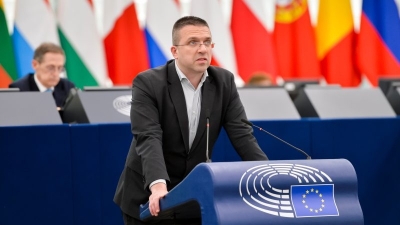MEPs ask EU Commission to reconsider standardisation approach
Members of the European Parliament that make up the Internal Market and Consumer Protection committee adopted on Tuesday (28 March) a non-binding resolution asking the European Commission to urgently reconsider its approach to standardisation in the light of the James Elliott case.
The Elliott ruling is a landmark legal case in the European standardisation field, as the EU Court of Justice considered that harmonised standards had the same binding effect as law. Harmonised standards are mandatory for complying with EU legislation, and their development is based on a standardisation request issued by the Commission.
The EU Court equated harmonised standards to law, which opened the door for such standards to be legally challenged.
Since the Elliott case in 2016, the Commission has become more prescriptive in its standardisation requests to protect itself from litigation.
However, the industry has consistently opposed the idea that technical standards should have the same legal value as hard law. Private companies drive the standardisation process and consider standards should evolve with time following technological developments.
In their resolution, the MEPs seem to largely endorse the industry position, recalling “standards are voluntary, market-driven, non-legally binding.”
The resolution also urges the Commission to “avoid the use of overly prescriptive requirements in relation to standardisation requests, which reduce the capacity of experts to propose appropriate and timely solutions.”
Although the own-initiative report is non-binding, it sends a political message to the EU executive at a particularly significant time, as the Commission is evaluating its Standardisation Regulation. However, whether a reform proposal will be presented within this mandate is unclear.
The Regulation provides the framework for standardisation requests, participating actors and comitology procedure. However, since the James Elliott verdict, the Commission engaged external consultants to double-check that the standard matches the original request.
MEPs consider that the Commission should ensure proper financial planning for these consultancy services, which should, in turn, better coordinate with the EU excellency hub on standards that were anticipated as part of the European standardisation strategy.
In addition, the parliamentary report makes a case for beefing up participation to societal stakeholders such as consumer groups and SMEs, noting that the lack of financial resources and technical expertise usually limits the participation of these organisations in the standardisation process.
In particular, MEPs want the Commission to cooperate with national governments to ensure funding programmes are in place to provide substantial and long-term financial support for SMEs and societal stakeholders to make their voices better heard in the process.
In the report, the national level is considered the most suitable to broaden SME participation, as it entails a lower cost and does not present obstacles like language barriers. Thus, national standardisation bodies should include standardisation projects of particular interest for SMEs in their programming.
Some national bodies have already established solidarity mechanisms by which larger companies contribute to the participation fee of societal stakeholders based on criteria like company turnover. The idea is for the EU executive to evaluate such mechanisms.
Furthermore, the MEPs want the Commission to carry out a mapping of civil society organisations that have an interest in contributing to standardisation work at the EU level.
At the same time, the need to strike a balance between inclusive participation and timely decision-making is recognised since delays in setting up technical standards have occurred in several sectors, creating problems for economic operators and causing fragmentation of the internal market.
Also part of the lawmakers’ wish list is for the Commission to establish, in consultation with European standardisation organisations, key performance indicators and guidelines to assess standards, notably, if they are linked to the objectives of the green and digital transitions.
At the same time, the resolution stresses that technical standards, which are industry-driven, are not the place to address fundamental rights and socio-economic issues.



